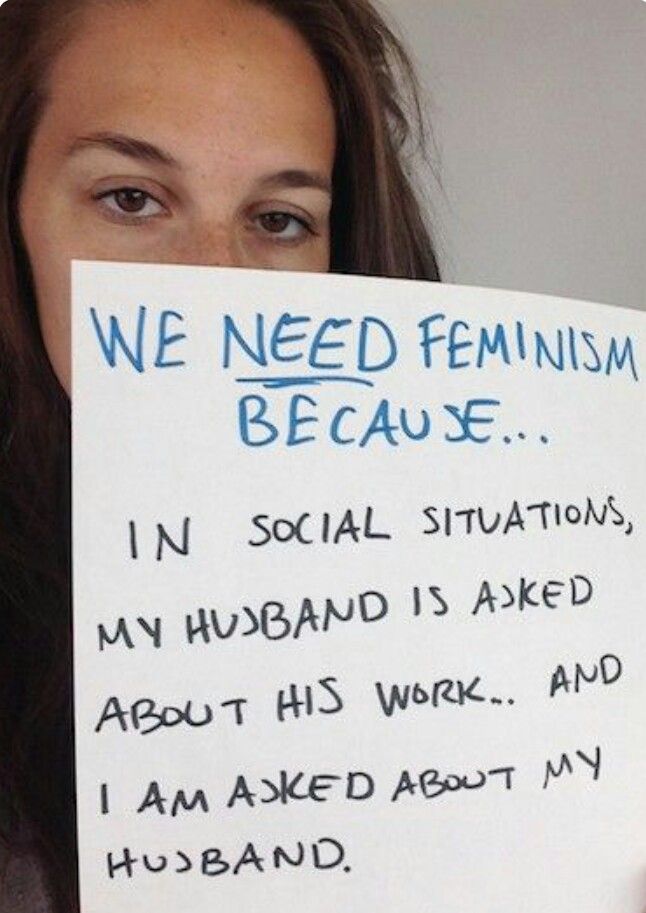The F Word (Part 1)
Jun 30, 2019 • 34 views
There is one word today that runs into ambiguity ad contention like no other word in history, the great F word- Feminism. There mere mention of the word inspires a rebellion in some, and generates immense disdain in others. So what is this greatly contested term all about? I find this word is the most misinterpreted term of our times. For starters, it is often equated with man-hating, putting women above men, bringing men down, subverting our culture through western influence and a bunch of other mistaken things. Feminism is a lot of things, but not these. Feminism is equality of all genders through equity. If it talks about equality, why is it called femi-nism? Well because to bring equality you need to raise the oppressed class, in this case females, hence the name. It does involve a specific focus on women because they have been the primary sufferers of patriarchy.
Intersectional literally meaning cutting across sections is a word that is now paired up with feminism to represent people of all social sections without discriminating against them. It recognizes that there are layers of problems that people face like class, caste, sexuality and others which combine or crossover to multiply the oppression that some people face. This is related to double oppression. In the Indian context, the term can be applied to a Dalit woman. She faces subjugation and even violence as a Dalit at the hands of the Upper castes, as a woman at the hands of men in a patriarchal society, and a combined vulnerability as a Dalit woman, considered inferior to her male Dalit counterpart by Upper caste men. She is, therefore, alarmingly prone to sexual abuse and threats and doubly oppressed in comparison to a savarna male.
There are many who deny that women are oppressed, they hold that in today’s modern era, they are equal. There is no need to uplift them and feminism is a call by angry women who hate men. That is not true at all. Two thousand years of patriarchy is so deeply ingrained in our system that we fail to even recognize the problem as a problem. It has become so normalized for us. But the fact is that patriarchy also affects the discourse of violence: women are threatened with a very particular form of violence that is sexual in nature, which is tied to their honor. The worst threat you can give to a man is not probability of physical harm, but a threat to rape women in his family. And if men and women are equal, then why do women have to manage the burden of both house work and professional work if she wants a career? A man does not have to think about these things. Why are women increasingly unsafe as compared to men? Why do we have a terrible sex-ratio? I could ask many questions like these that would make people uncomfortable or prompt them to give illogical or orthodox answers.
The major blame goes on to sexist gender roles for this, which are disguised as culture and tradition. It is our culture for women to take care of the personal realm while men must earn. Gender roles are clearly defined set of roles that tell each gender to act and behave in a certain manner. They confine them to a box. Men must be brave, physically aggressive, bread-winners, protectors and dominant; Women must be caring, submissive, ideal housewives, obedient, honorable. These qualities are advanced by our culture: the Great Gods are men and the damsels in distress are women. The woman must remain within the boundaries of her home, public life is to be enjoyed by men only (hence the popular feminist slogan “the personal is political”). Every aspect of our society reeks of sexism. This is not culture, this is discrimination. Men, women and others have a biological difference, which does not mean they are unequal. Even all gender roles are not a problem unless they are enforced, unless they limit the freedom and choice that one gender has as compared to another. In our society’s case, they do. They assign males a privilege that they don’t realize they have. I do not blame each male for the pathetic condition of our society, but it is essential they realize their privilege. E.g. a man would not have to worry about marriage or children affecting his career, or dowry, or whether his clothes make him vulnerable to perverts.
So does feminism only cater to women? What does it say of men? If it it is a good thing, why is it it hated by many?
You will find the answer to these questions in part 2 of the article on my profile!

